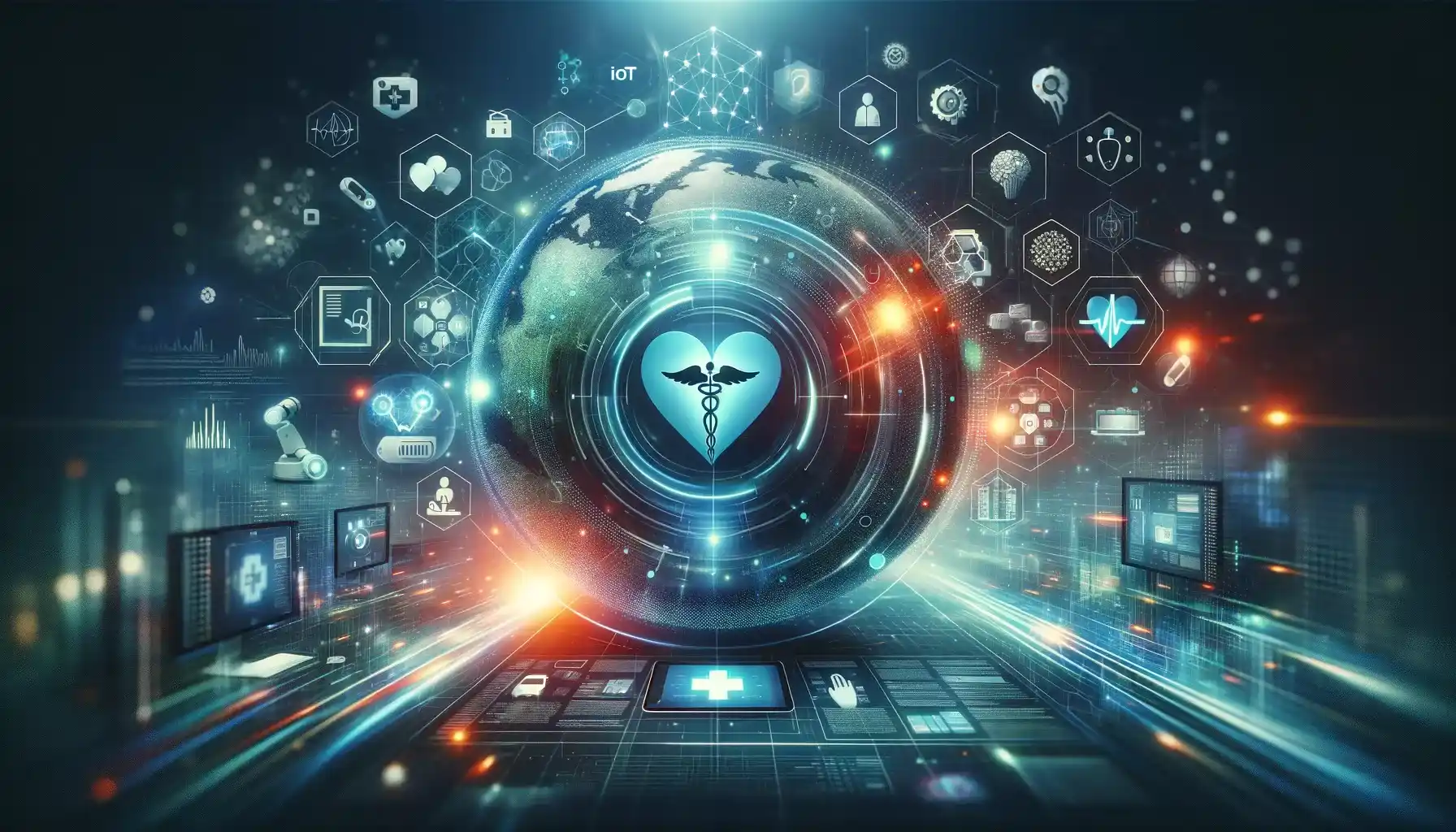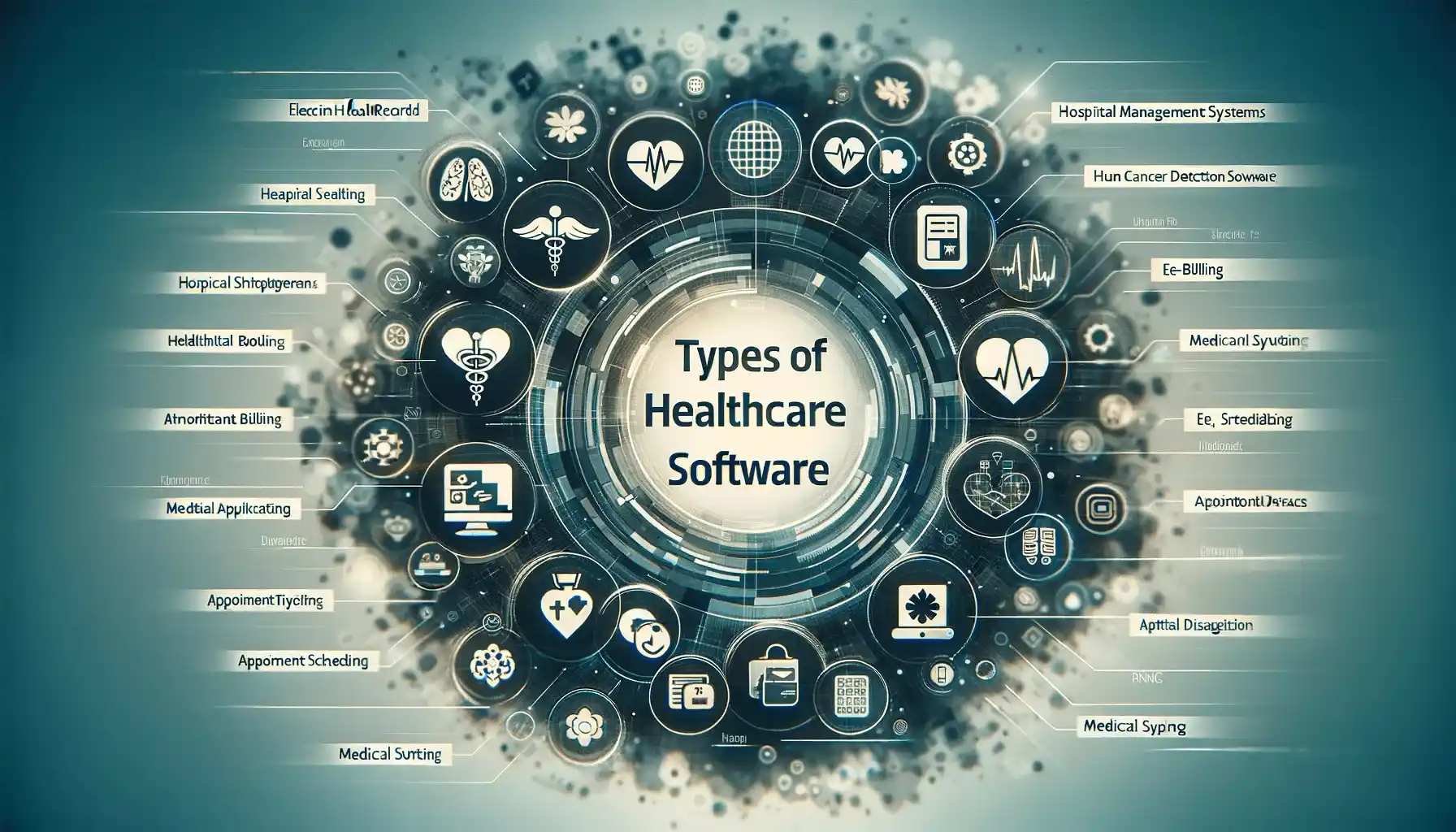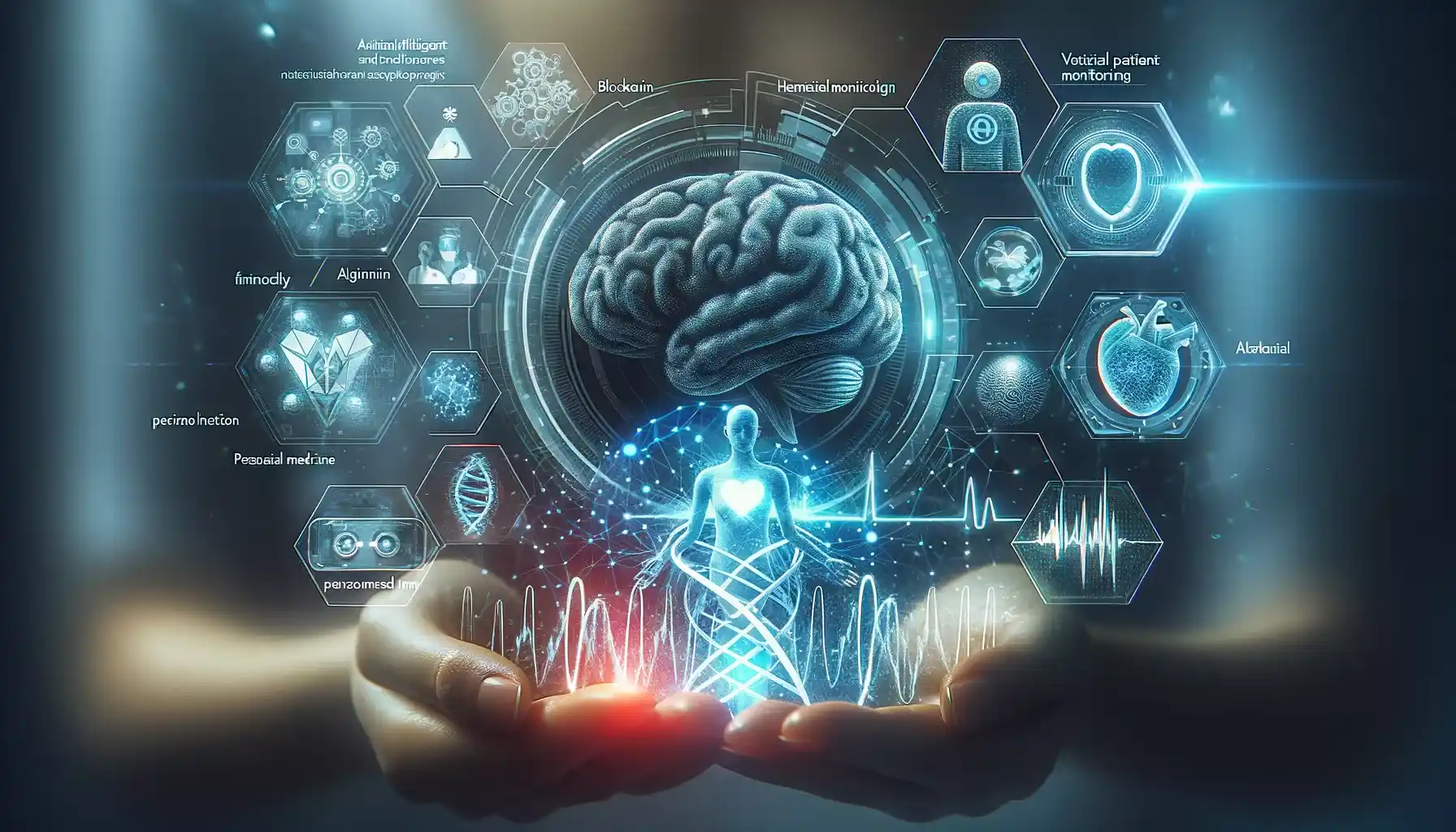Table of Contents
The advancement of the digital revolution through the help of IT has benefited business areas, especially medical science. Medical organizations and pharmaceutical businesses are refocusing their efforts on the use of information technology via healthcare software development.
Healthcare software is a generic term that refers to intelligent applications that provide aid, advice, and assessment in a healthcare environment.

Numerous hospitals are currently transitioning to adopting the practice and using various healthcare software solutions that help practitioners with remote patient monitoring.
The healthcare software development industry is a juggernaut, boasting a staggering $600 billion in revenue this year alone. This meteoric rise underscores the paramount importance of technology in modern medicine. While the benefits of streamlined administrative tasks and efficient patient care are apparent, other factors contribute to this exponential growth.
Technological Leaps: Advancements in artificial intelligence (AI) and the Internet of Things (IoT) have spurred innovation within medical companies. These technological marvels facilitate seamless data sharing and process optimization, prompting a paradigm shift in healthcare platforms.
Consider telemedicine, which has witnessed an unprecedented surge in popularity. With improved accessibility and user-friendliness, telemedicine is expected to generate a whopping $240 billion profit by 2032.
What is Healthcare Software Development?
Healthcare software development is pivotal in creating tailored computer programs for the healthcare industry, enhancing efficiency, accuracy, and patient care.
In the field of clinical genomics, software solutions play a critical role in managing complex genetic data, supporting precision medicine, and enabling clinicians to make more informed, personalized treatment decisions based on genetic insights.
Such software establishes a comprehensive ecosystem within healthcare organizations, facilitating accurate and high-quality clinical services.
For instance:
- Doctors can effortlessly track patient health, schedule appointments, access reports, and manage staff.
- Patients can conveniently book appointments, communicate with doctors, share reports, and receive health advice.
At its core, healthcare software streamlines interactions, improves care quality, and ensures privacy and accuracy of record-keeping across various healthcare settings.
Machine learning plays a crucial role, in digitizing patient records, diagnosing illnesses, and revolutionizing types of healthcare software development alongside Big Data and e-health initiatives.
Importance of Healthcare Software Development
The importance of types of healthcare software development cannot be overstated. By leveraging technology, healthcare organizations can establish a complete ecosystem that enables accurate and higher-quality clinical services. From doctors tracking patient health to patients booking appointments and accessing medical advice, types of healthcare software development play a crucial role in optimizing healthcare delivery.
Types of Healthcare Software Development

Electronic Health Record (EHR) Software
Electronic Health Record (EHR) software revolutionizes Types of Healthcare Software Development data management by digitizing and centralizing patient information. It encompasses comprehensive medical histories, allergy records, laboratory results, and demographic data. EHR software optimizes record-keeping processes, ensuring data accuracy and completeness while facilitating easy access for healthcare providers.
By streamlining administrative tasks and enabling quick retrieval of patient data, EHR software enhances efficiency in healthcare delivery. Moreover, its accessibility improves care coordination among providers and supports informed decision-making, ultimately enhancing the quality of patient care and outcomes.
Telemedicine Software
Telemedicine software revolutionizes healthcare and is a vital component of Types of Healthcare Software Development by enabling remote medical consultations and care delivery. Through virtual connections, patients can access healthcare providers for diagnosis, treatment, and monitoring, regardless of geographical barriers. This technology enhances access to healthcare services, especially in remote or underserved areas where traditional healthcare infrastructure may be lacking.
By bridging the gap between patients and providers, telemedicine software improves healthcare accessibility, increases patient convenience, and ultimately enhances overall healthcare outcomes.
Medical Practice Management Software
Medical Practice Management Software is a vital tool for healthcare facilities to manage administrative tasks efficiently. It enables seamless appointment scheduling, simplifies billing and invoicing processes, facilitates patient registration, and optimizes staff management.
By automating these tasks, the software reduces administrative burden, minimizes errors, and improves overall operational efficiency. Additionally, it enhances the patient experience by ensuring smoother workflows, shorter wait times, and more accurate billing.
Ultimately, Medical Practice Management Software allows healthcare providers to focus more on delivering quality care to patients while streamlining the business aspects of their practice.
Health Information Exchange (HIE) Software

Health Information Exchange (HIE) Software is a vital component of Types of Healthcare Software Development. It enables seamless and secure sharing of health information among different healthcare organizations.
By facilitating interoperability and data exchange, HIE software ensures that healthcare providers have access to comprehensive patient records, leading to improved care coordination, enhanced patient safety, and more effective population health management initiatives.
Overall, HIE software plays a crucial role in optimizing healthcare delivery and improving patient outcomes across the healthcare ecosystem.
Radiology Information Systems (RIS)
Radiology Information Systems (RIS) is a vital component of Types of Healthcare Software Development. These systems optimize radiology workflows by managing appointments, storing images, generating reports, and handling billing processes.
RIS software enhances efficiency in radiology departments by streamlining tasks, improving image quality, and facilitating accurate diagnosis and treatment planning.
By providing comprehensive tools for managing radiological data, RIS software plays a crucial role in enhancing patient care and operational efficiency within healthcare facilities.
Patient Engagement Software
Patient engagement software is a pivotal type of healthcare software development aimed at fostering proactive patient involvement in their care. Through features like appointment reminders, health education materials, medication adherence support, and secure communication channels with healthcare providers, this software empowers patients to actively participate in their healthcare journey.
By facilitating better communication, education, and adherence to treatment plans, patient engagement software enhances patient satisfaction, improves health outcomes, and strengthens collaboration between patients and healthcare providers, exemplifying the importance of Types of Healthcare Software Development.
Pharmacy Management Software
Pharmacy Management Software is a vital type of healthcare software development. It automates and streamlines pharmacy operations, handling tasks like inventory management, prescription processing, dispensing, and billing. Optimizing these processes improves medication safety, enhances workflow efficiency, and ensures regulatory compliance within pharmacy settings.
This software exemplifies the importance of Types of Healthcare Software Development in improving operational efficiency and patient safety within specific healthcare domains.
Trends Shaping Healthcare Software Development in 2024

- 1. Artificial Intelligence (AI) and Machine Learning: AI and machine learning technologies continue to revolutionize types of healthcare software development. These technologies enable advanced analytics, predictive modeling, and personalized treatment recommendations, leading to improved clinical outcomes and more efficient healthcare delivery.
- 2. Blockchain Technology: Blockchain technology is increasingly being adopted in types of healthcare software development to enhance data security, interoperability, and transparency. Blockchain-based solutions facilitate secure and tamper-proof storage and sharing of sensitive health information, supporting efforts to improve patient privacy and data integrity.
- 3. Remote Patient Monitoring: The rise of remote patient monitoring solutions allows healthcare providers to monitor patient’s health remotely, outside of traditional healthcare settings. These solutions leverage wearable devices, sensors, and mobile applications to collect real-time health data and provide timely interventions, improving patient outcomes and reducing healthcare costs.
- 4. Virtual Reality (VR) and Augmented Reality (AR): VR and AR technologies are being integrated into healthcare software solutions to enhance medical training, patient education, and surgical planning. These immersive technologies enable healthcare professionals to visualize complex anatomical structures, simulate medical procedures, and improve patient understanding of treatment options.
- 5. Personalized Medicine: Genomics and data analytics advancements are driving the development of personalized medicine solutions. These solutions leverage genetic and clinical data to tailor treatment plans to individual patient’s unique characteristics and preferences, leading to more effective and personalized healthcare interventions.
Conclusion
Healthcare software development plays a vital role in transforming the healthcare industry, enabling healthcare organizations to deliver more efficient, accurate, and patient-centered care.
By embracing innovative technologies and adopting tailored software solutions, healthcare providers can improve clinical outcomes, enhance patient experience, and drive positive change in healthcare delivery.
As we look ahead to 2024 and beyond, the continued evolution of types of healthcare software development promises to revolutionize the way healthcare is delivered and experienced worldwide.